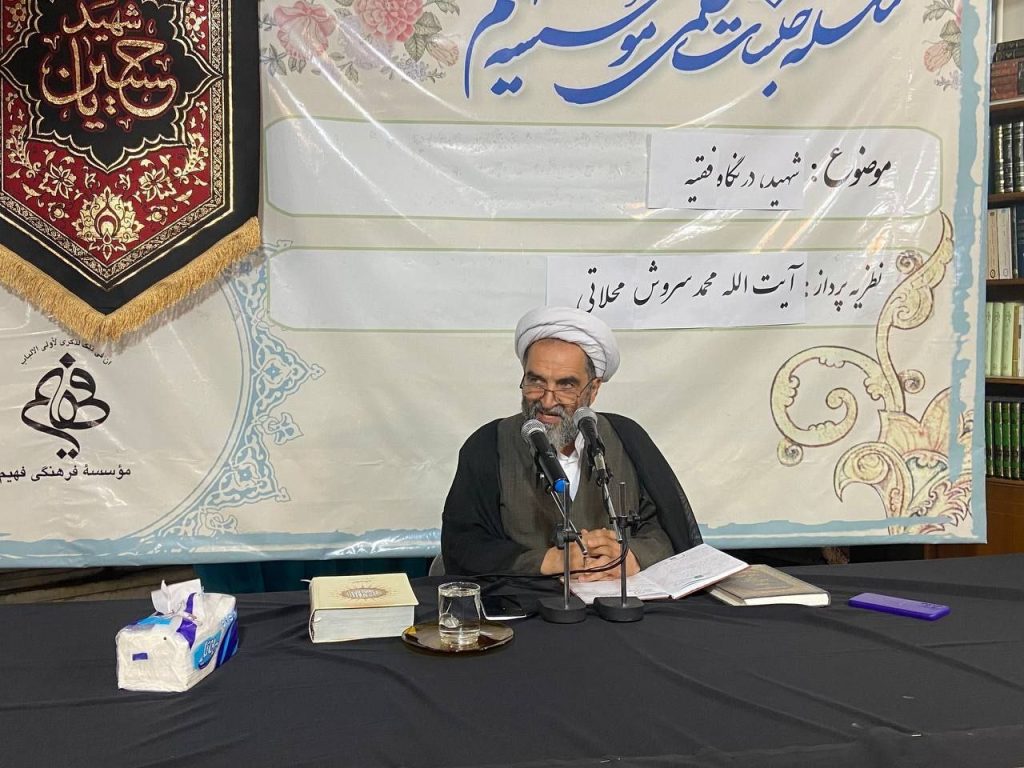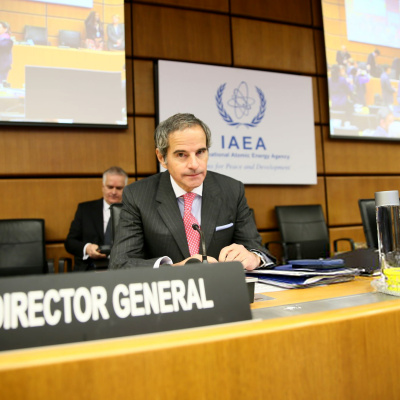
Title: The True Essence of Martyrdom: Ayatollah Saroukh Mahallati on the Virtues of Pure Intention and Righteous Action
The Dual Pillars of True Martyrdom
In a profound address on the theological and jurisprudential dimensions of martyrdom, Ayatollah Mohammad Saroukh Mahallati, a prominent scholar at the Qom Seminary, emphasized that genuine martyrdom requires both “husn-e fa’ali” (purity of intention) and “husn-e fe’li” (righteousness of action). Speaking at the Fahim Cultural Institute, he clarified that merely participating in battle—even alongside the Prophet (PBUH)—does not guarantee martyrdom if one’s motives are worldly gains rather than divine purpose.
Intentions Matter: Beyond the Battlefield
Ayatollah Mahallati stressed that the sincerity of a warrior’s intention is paramount. “If someone fights alongside the Prophet (PBUH) but seeks material rewards, they are not truly a martyr,” he stated. This principle, rooted in Islamic jurisprudence, underscores that martyrdom is not merely about dying in combat but about the nobility of one’s purpose.
Defending Faith: The Legitimacy of Righteous Struggle
The Ayatollah further explained that the context of battle is equally critical. “Martyrdom is attained in a just jihad—whether offensive or defensive—where the cause is truth and the defense of Muslims,” he asserted. He highlighted that even in the absence of an Imam or his appointed representative, defensive warfare remains legitimate, particularly against aggression targeting the Muslim community.
The Eternal Path of Sacrifice
Referencing the views of Allamah Hilli, Ayatollah Mahallati noted that martyrdom is always a noble pursuit, regardless of the odds. “Even if victory seems impossible, standing firm in the face of tyranny is a sacred duty,” he said. He cautioned, however, against reckless valor, reminding listeners that Islamic law permits truces when they serve the greater good of the Muslim community.
Balancing Zeal with Wisdom
Addressing revolutionary-minded youth, the Ayatollah urged a return to foundational jurisprudential principles. “Emotion must not override reason,” he advised, citing Quranic injunctions and historical precedents where restraint was exercised. He called for deeper study of Islamic scholarly traditions to avoid misapplying the concept of martyrdom in contemporary conflicts.
A Multifaceted Discourse
Concluding his remarks, Ayatollah Mahallati emphasized that martyrdom is a nuanced theological and legal issue. “Those who wish to engage in this discussion must consider all its dimensions,” he said, steering clear of direct application to modern scenarios while reaffirming the timeless virtues of selfless sacrifice for divine truth.
This article preserves the original message while presenting it in a structured, engaging format suitable for an English-speaking audience with a political and theological focus.

